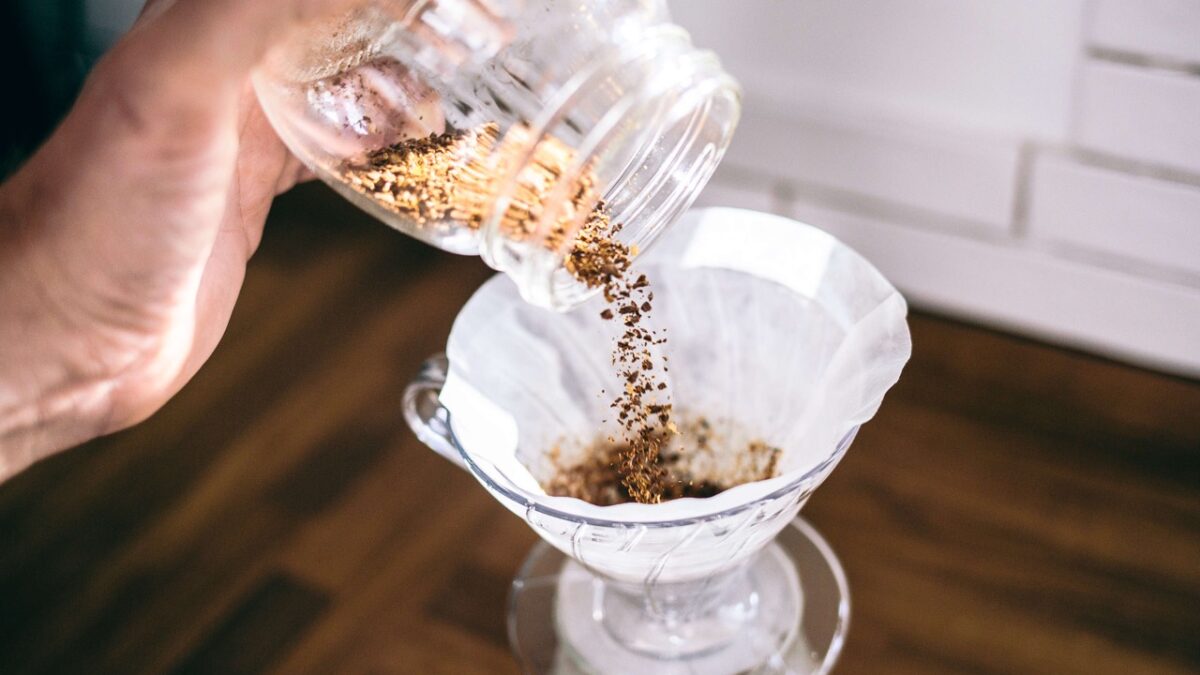
All about beans
Coffee is a hot beverage enjoyed worldwide, crafted from the aromatic beans of a coffee plant. As the legend goes, the energy-boosting benefits of these beans were first discovered by goat herders on the plains of Ethiopia.
They noticed that after his goats grazed on the berries of a particular tree, they seemed even springier than usual, and some even pulled an all-nighter. It turns out the beans contained caffeine, a naturally occurring stimulant that can help stave off tiredness.
Some people are more sensitive to caffeine, and as a result, may experience an unwanted side effect or two after several cups of coffee. To combat this, decaf coffee was born. But just what is decaffeinated coffee, and how is the caffeine removed?
In this tell-all guide, we spill the beans on everything you need to know, including:
Decaf coffee is simply the same popular hot drink with a lower caffeine content. Good decaf coffee has the same rich aromas and balanced bitterness as its caffeinated counterpart, just without those jittery side effects.
Decaf coffee was first made commercially by a German man named Ludwig Roselius in 1906. Convinced his father had died from a caffeine overdose, he set about searching for a recipe that could extract the caffeine, without affecting the satisfying coffee taste. He stumbled on a solution by accident, when a shipment of coffee beans was soaked in seawater. Once brewed, he noticed these beans offered none of the buzz coffee drinkers had come to know and depend on.
From this discovery, Ludiwg developed a patented method of steaming coffee beans and using Benzene to remove the caffeine. While benzene is no longer used thanks to its reputation as a carcinogen, a combination of water and organic solvents is still used today to extract the caffeine from regular beans.
It depends on your perspective. If you have bad anxiety or often find yourself lying awake at night, then drinking decaf coffee instead could be incredibly beneficial. You may also be advised to cut down your caffeine if you are pregnant, in which case decaf is certainly a safer alternative.
On the other hand, decaf coffee is thought to contain fewer health-boosting antioxidants than a regular energy-boosting brew. Drinking caffeinated coffee is also thought to increase your metabolic rate and accelerate fat-burning – benefits that are lost through the decaffeination process.
Contrary to popular belief, decaf beans don’t occur naturally. Decaf coffee comes from the same old seeds as regular coffee, grown on shrubs native to the tropics. After the plant flowers, small red berries appear, which gradually darken into black pods, containing two green seeds each. These seeds are extracted, fermented and dried, ready for roasting. At this stage, they are known as green coffee beans.
Before the beans are roasted, one of several decaffeination processes is used to remove the naturally occurring caffeine. The resulting beans might then be referred to as decaffeinated beans.
The most popular process involves steaming the beans with water and then soaking them with an organic solvent such as ethyl acetate or methylene chloride. Once the beans have been decaffeinated, the solvent is thoroughly washed off. This is generally considered the best method for preserving that unmistakable coffee taste while naturally stripping away caffeine.
Another method, known as the Swiss Water Process, uses a charcoal filter and carbohydrate solvent to absorb and remove caffeine. The final method is known as Supercritical Carbon Dioxide extraction, which uses CO2 at the exact moment it changes from a liquid to a gas. In this critical moment, CO2 can act as a solvent, drawing out and dissolving caffeine from pre-soaked beans.
Many people are surprised to learn that decaf coffee isn’t 100% caffeine free. The caffeine content of the average decaf coffee varies depending on the brand and the extraction method, but a small amount of caffeine will still be present.
The average in the UK is between 2 – 15 mg of caffeine per decaf cup. This might sound like a lot, but not when you compare it to the 80 – 100 mg of caffeine found in a regular cup of joe.
In the UK, we follow European regulations which state decaffeinated coffee beans should have no more than 0.1% caffeine content.
Just like a regular cup of joe, decaf coffee comes in all tastes and guises. From distinguished dark roasts for a sophisticated shot of espresso to light, latte-appropriate blends, you’ll find a decaf version for every flavour profile.
At Neighbourhood Coffee Roasters, we believe that decaf coffee should be every bit as delicious as its caffeinated cousin. That’s why we developed our award-winning blend from Colombia, with tempting notes of toffee, cherry, and black forest gateau.
It’s available to suit the brewing method of your choice, from whole beans to special grinds for cafetière, Aeropress, and espresso machines. We might be biased, but we think it’s the best no-buzz blend on the market.
Buy it here to find out.